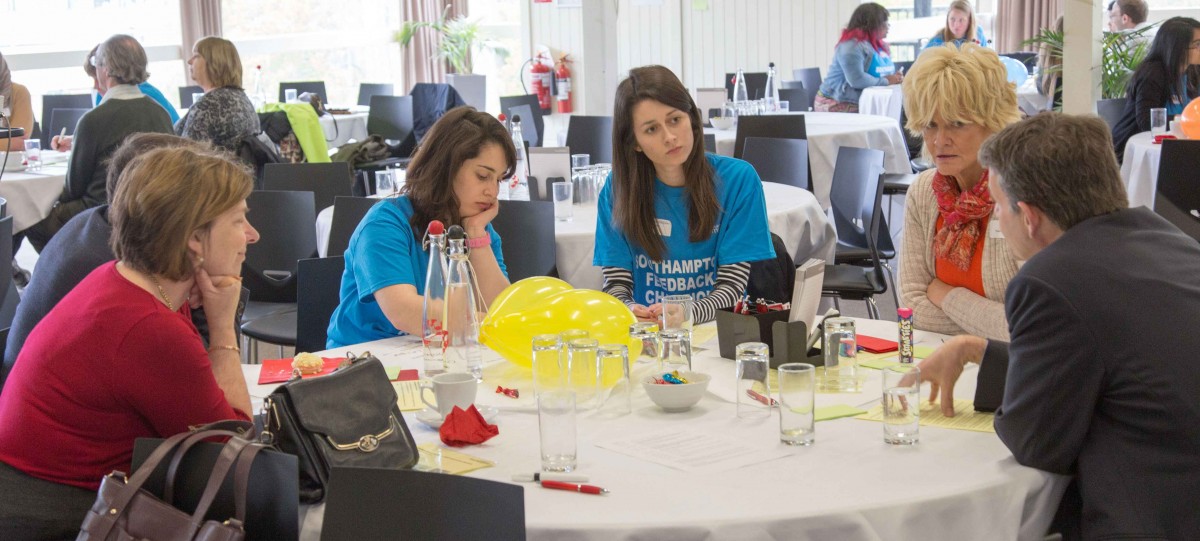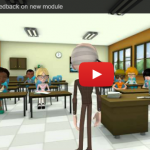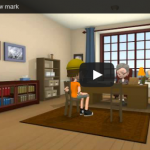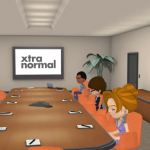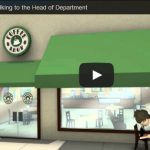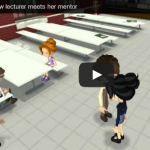This section of the website is dedicated to sharing useful resources related to feedback. If you want to share some with us, don’t hesitate to contact us.
The Good Practice Database |
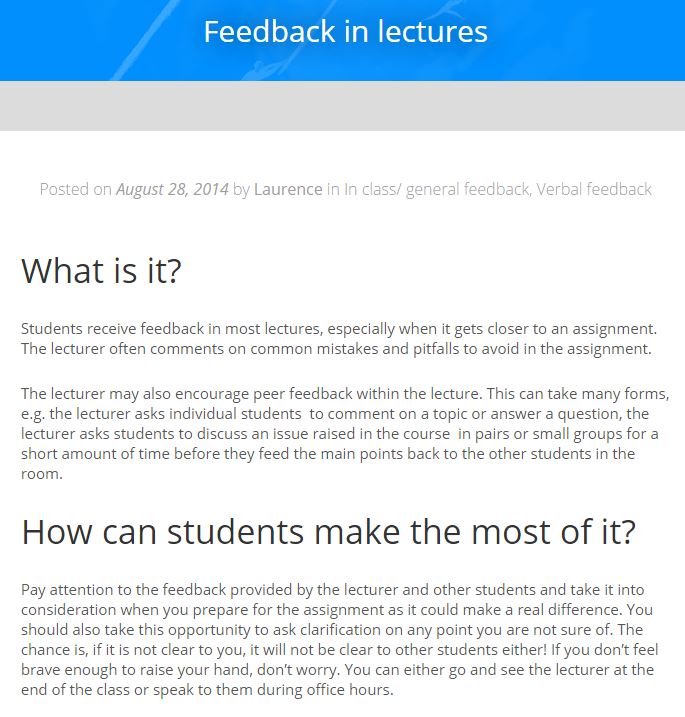 Examples of good practice when giving and receiving feedback have been listed below. They are organised by themes.
Examples of good practice when giving and receiving feedback have been listed below. They are organised by themes.
- Class/ general feedback
- 1-to-1/ detailed feedback
- Written feedback
- Verbal feedback
- Peer feedback
- Informal feedback
- Feedback technologies
Each example is divided into two sections: ‘What is it?‘ and ‘How can students make the most of it?‘ like int he picture on the right.
You can also browse the whole database here.
Southampton lecturers talking feedback |
More videos like these on the Southampton Feedback Champions YouTube channel.
Reflecting on your practice |
The following resources can be used with groups of teaching staff, students and quality staff. They can be adapted or used in any way you wish.
Development videos
In all the videos below some sort of feedback is taking place (or failing to take place). Watch the videos and discuss the questions which come up at the end.
Everyone asks the same question: It’s open office hours for Dr Brambell and everyone’s asking the same question.
Feedback on new module: This semester Alan has taught a new module for the first time. In this video he attempts to get some feedback from the class.
 Nearly a first: Susan has just missed out on a first class mark. She is very well motivated and hopes that Professor Smith can help her do what’s necessary to get a first.
Nearly a first: Susan has just missed out on a first class mark. She is very well motivated and hopes that Professor Smith can help her do what’s necessary to get a first.
Low mark: Roger has not done very well on his latest assignment. Perhaps a chat with Professor Jones will help.
 Feedback to the whole class: Dr O’Leary has been teaching MacBeth this semester. She decides to give some general feedback to the whole class before she returns their marked essays.
Feedback to the whole class: Dr O’Leary has been teaching MacBeth this semester. She decides to give some general feedback to the whole class before she returns their marked essays.
Staff-student committee: It is time for the staff-student committee to meet and Abigail has an issue she needs to raise.
Talking to the Head of Department: Bill has working at the university for one semester. As his head of department Anne must speak to him to review his teaching performance, but is she taking it seriously enough? Can Bill get answers to his questions?
New lecturer meets her mentor: Donna is a new lecturer at the university. She meets Peter, her official mentor, for lunch.
Card activity
Use this card activity in a professional development setting:
- to demonstrate some of the thousands of possible scenarios in which feedback can occur
- OR to encourage reflection on how a participant might use of receive feedback in their work.
Download the activity’s cards and instructions.
This work is licensed under a Creative Commons Attribution-ShareAlike 3.0 Unported License.
Further Resources |
Principles of good feedback practice
These examples follow the HEA Seven Principles of Good Feedback Practice as identified in the Student Enhanced Learning through Effective Feedback (SENLEF) project which published seven principles of good feedback practice (Juwah et al. 2004:6). These principles suggest that feedback should:
- facilitate the development of self-assessment (reflection) in learning
- encourage teacher and peer dialogue around learning
- help clarify what good performance is (goals, criteria, standards expected)
- provide opportunities to close the gap between current and desired performance
- deliver high quality information to students about their learning
- encourage positive motivational beliefs and self-esteem
- provide information to teachers that can be used to help shape the teaching
Feedback at the University of Southampton
Although feedback can be ongoing and informal, feedback on assessment is a defined procedure which all Faculties are required to follow. This procedure is part of the Assessment Framework, which sets out the key policies and principles which must be followed in documenting and managing assessment for students. The Assessment Feedback to Students Policy defines the rules and procedures which all teaching staff are required to follow when giving feedback to students on their assessed work. the Assessment Framework is part of the Quality Handbook which draws together the policies and processes which constitute the University’s Quality, Monitoring and Enhancement (QME) framework.
Feedback and Assessment Benchmarking Tool
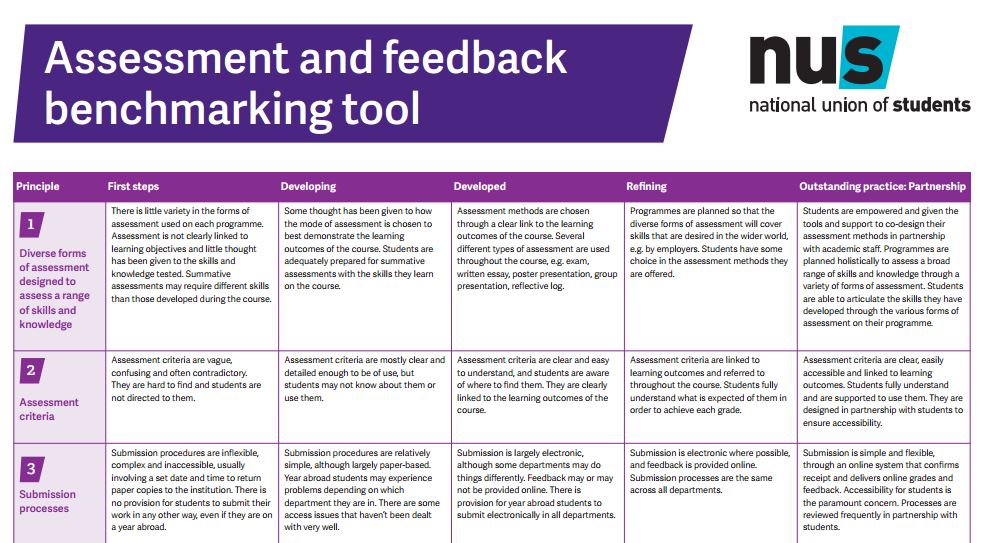 Do you want to improve your department’s feedback and assessment practice but don’t know where to start? The National Union of Students (NUS) produced a benchmarking tool for feedback and assessment, which you might find useful. It is based on the NUS 10 Principles of Effective Feedback and Assessment practice, themselves based on the NUS 10 Principles of Feedback. You can use the NUS benchmarking tool to map your department’s or institution’s practice and suggest areas for improvement.
Do you want to improve your department’s feedback and assessment practice but don’t know where to start? The National Union of Students (NUS) produced a benchmarking tool for feedback and assessment, which you might find useful. It is based on the NUS 10 Principles of Effective Feedback and Assessment practice, themselves based on the NUS 10 Principles of Feedback. You can use the NUS benchmarking tool to map your department’s or institution’s practice and suggest areas for improvement.
Download the NUS Feedback and Assessment Benchmarking Tool
Useful feedback references |
Selected Articles
- Askew, S. and Lodge, C. Gifts, ping-pong and loops – linking feedback to learning. In S. Askew
(Ed), Feedback for learning (1-17). London: Routledge. 2001. - Assessment Reform Group. “Assessment for Learning – 10 Principles.” 2002. Web. 16 July 2015.
- Beaumont, C., O’Doherty, M.O., Shannon, L. Staff and student perceptions of feedback quality
in the context of widening participation, York, Higher Education Academy. 2008. - Carless, D., Salter, D., Yang, M., & Lam, J. Developing sustainable feedback practices. Studies
in Higher Education, 36(4), 395-407. 2011. - Education Services Australia. “What Is Assessment for Learning?” Assessment for learning. N.p., n.d. Web. 16 July 2015.
- Gibbs, Graham. “Making Feedback on Assignments Effective: Principles and Guidance for Tutors.” Web. 15 July 2015.
- —. “Making Feedback Work Involves More than Giving Feedback – Part 1 the Assessment Context.” SEDA. 53
- Powerful Ideas All Teachers Should Know About. N.p., Jan. 2015. Web. 15 July 2015.
- —. “Making Feedback Work Involves More than Giving Feedback – Part 2 The Students.” SEDA. 53 Powerful Ideas All Teachers Should Know About. N.p., Jan. 2015. Web. 15 July 2015.
- —. “Making the Best Use of Feedback on Assignments: A Guide for Students.” Web. 15 July 2015.
- Hattie, J. and Timperley, H. The power of feedback. Review of educational research. 2007. 77(1), 81-112.
- Hepplestone, S. et al. Feedback. A student guide to using feedback. Sheffield Hallam University. 2010.
- Juwah, C. et al. Enhancing student learning through effective formative feedback. Higher Education Academy Generic Centre. 2004.
- Nicol, D. From monologue to dialogue: improving written feedback in mass higher education,
Assessment and Evaluation in Higher Education. 2010. 35(5), 501-517. - Nicol, David. Transforming Assessment and Feedback: Enhancing Integration and Empowerment in the First Year. Mansfield: QAA. Print. 2009.
- Nicol, D. Quality Enhancement Themes: The First year Experience (Glasgow: QAA Scotland)
Phil Race (online) Assessment, teaching and learning in higher education. 2008. - Parry, S. and Bamber, M. Feedforward: the response of accounting students. Practitioner
research in higher education. 2010. 4, 62-72. - Poulos, A. and Mahony, M. J. (2008) Effectiveness of feedback: the students’ perspective, assessment & evaluation in Higher Education 33(2), 143-154.
- Price, Margaret et al. “Assessment Standards: A Manifesto for Change.” BROOKES eJOURNAL OF LEARNING AND TEACHING. N.p., n.d. Web. 16 July 2015.
- Price , M., Handley, K., Millar, J. and O’Donovan, B. (2010) Feedback: all that effort, but what is the effect? Assessment & Evaluation in Higher Education 35(3), 277-289.
- Ramsden, P. (2003) Learning to teach in Higher Education.2nd Edition Oxford: Taylor and Francis.
- Sadler, D. R. (2010) Beyond feedback: Developing student capability in complex appraisal, assessment
and evaluation in Higher Education 35, 535-550 - Sambell, Kay. Rethinking Feedback in Higher Education: An Assessment for Learning Perspective. HEA Subject Centre for Education, University of Bristol, 2011. Web. 16 July 2015.
- Vella, F. “Enhancing Learning through Self-Assessment” D Boud. Pp 247. Kogan Page, London. 1995. Biochemical Education 24.3 (1996): 183–183. Wiley Online Library. Web. 16 July 2015.
- Yorke, M. Formative assessment in higher education: Moves towards theory and the
enhancement of pedagogic practice, Higher Education. 2003. 45, 477-501
Selected Resources
- NTU CADQ Guide: Feedback turnaround time: http://www.ntu.ac.uk/adq/document_uploads/assessment_awards/137907.pdf
- Making feedback on assignments effective: principles and guidance for tutors (Graham Gibbs): http://www.testa.ac.uk/index.php/resources/best-practice-guides/125-feedback-guide-for-lecturers
- Making the best use of feedback on assignments: a guide for students (Graham Gibbs): http://www.testa.ac.uk/index.php/resources/best-practice-guides/126-feedback-guide-for-students
- Effective Assessment in the Digital Age (JISC): http://www.webarchive.org.uk/wayback/archive/20140614075437/http://www.jisc.ac.uk/whatwedo/programmes/elearning/assessment/digiassess.aspx
Selected Websites
- Higher Education Academy, Assessment and Feedback http://www.heacademy.ac.uk/assessment
- Oxford Brookes University, ASKe: Assessment Standards Knowledge exchange http://www.brookes.ac.uk/aske/index.html
- University of Edinburgh, Enhancing feedback http://www.enhancingfeedback.ed.ac.uk/
- Edutopia http://www.edutopia.org/blog/grading-tips-student-feedback-heather-wolpert-gawron
- Staff and Educational Development Association (SEDA) blog. Ideas 27 and 28 are about feedback http://www.seda.ac.uk/53-powerful-ideas
- FASTECH (Feedback and Assessment for Students with Technology) http://www.fastech.ac.uk/
- The Rise Model for providing meaningful feedback to students
//

